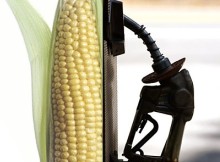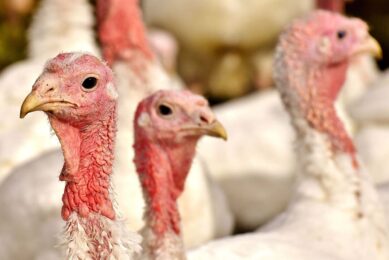Livestock, poultry coalition calls for end of ethanol subsidies

Major livestock and poultry trade associations have asked the House Ways and Means Committee to allow a 30-year-old tax credit and a protective tariff for ethanol to expire at the end of this year.
The request was made in a letter signed by national industry trade associations, including the American Meat Institute, the National Turkey Federation, the National Chicken Council and the National Cattlemen’s Beef Association.
“Although we support the need to advance renewable and alternative sources of energy, we strongly believe that it is time that the mature corn-based ethanol industry operates on a level playing field with other commodities that rely on corn as their major input,” the groups wrote in a letter to Michigan Congressmen Sander M. Levin and Dave Camp, the chairman and ranking Republican member, respectively, of the tax-writing committee. “Favoring one segment of agriculture at the expense of another does not benefit agriculture as a whole or the consumers that ultimately purchase our products.”
The groups noted their serious concerns over the negative economic effects that government support for corn-ethanol has had on animal agriculture, specifically the Volumetric Ethanol Excise Tax Credit (VEETC) and the import tariff on foreign ethanol.
“The blender’s tax credit, coupled with the import tariff on foreign ethanol, has distorted the corn market, increased the cost of feeding animals, and squeezed production margins — resulting in job losses and bankruptcies in rural communities across America.”
The groups pointed out that a September 2008 report by the Congressional Research Service (CRS) stated that the dramatic increase in livestock production costs were attributed to higher costs for feed. The CRS report said that “the main driver was feed, which may account for 60%-70% of total livestock production costs in any given year.”
Between 2005 and 2008, corn prices quadrupled, reaching a record high of more than $8 a bushel; a pattern that is unsustainable for our industries, the groups said.
“There is no safety net to protect against the volatility in the commodity markets, forcing all industries to pay higher prices for input costs due to the fluctuations in the corn market,” the groups wrote. “While there has been some recent relief in corn prices, current market prices are still 50% higher relative to pre-RFS conditions.”
The groups said animal agriculture has suffered serious economic hardship, including:
– The turkey industry has endured the deepest cutbacks of any in animal agriculture – a decrease in turkeys raised of more than 6% since 2007 levels and a near 9% reduction from 2008 levels – to adjust to these increased input costs. More importantly, the turkey industry eliminated nearly 3,000 jobs vital to rural America in 2008 and 2009 alone.
– The cumulative additional cost on the broiler industry since corn prices began their rise in the fall of 2006 has been almost $15 bln, as of April 2010. This additional cost does not include the higher cost of other feed ingredients, such as soybean meal, whose prices tend to move in tandem with corn. Accordingly, broiler companies have suffered reduced profitability.
The groups reminded the committee that animal agriculture is united in its support for energy independence and the development of the renewable fuels industry.
“However, 30 years of support has created a mature corn ethanol industry that now needs to compete fairly in the marketplace and allow for the next generation of renewable fuels to grow,” they said.
For a copy of the letter, click here.
Source: National Turkey Federation













